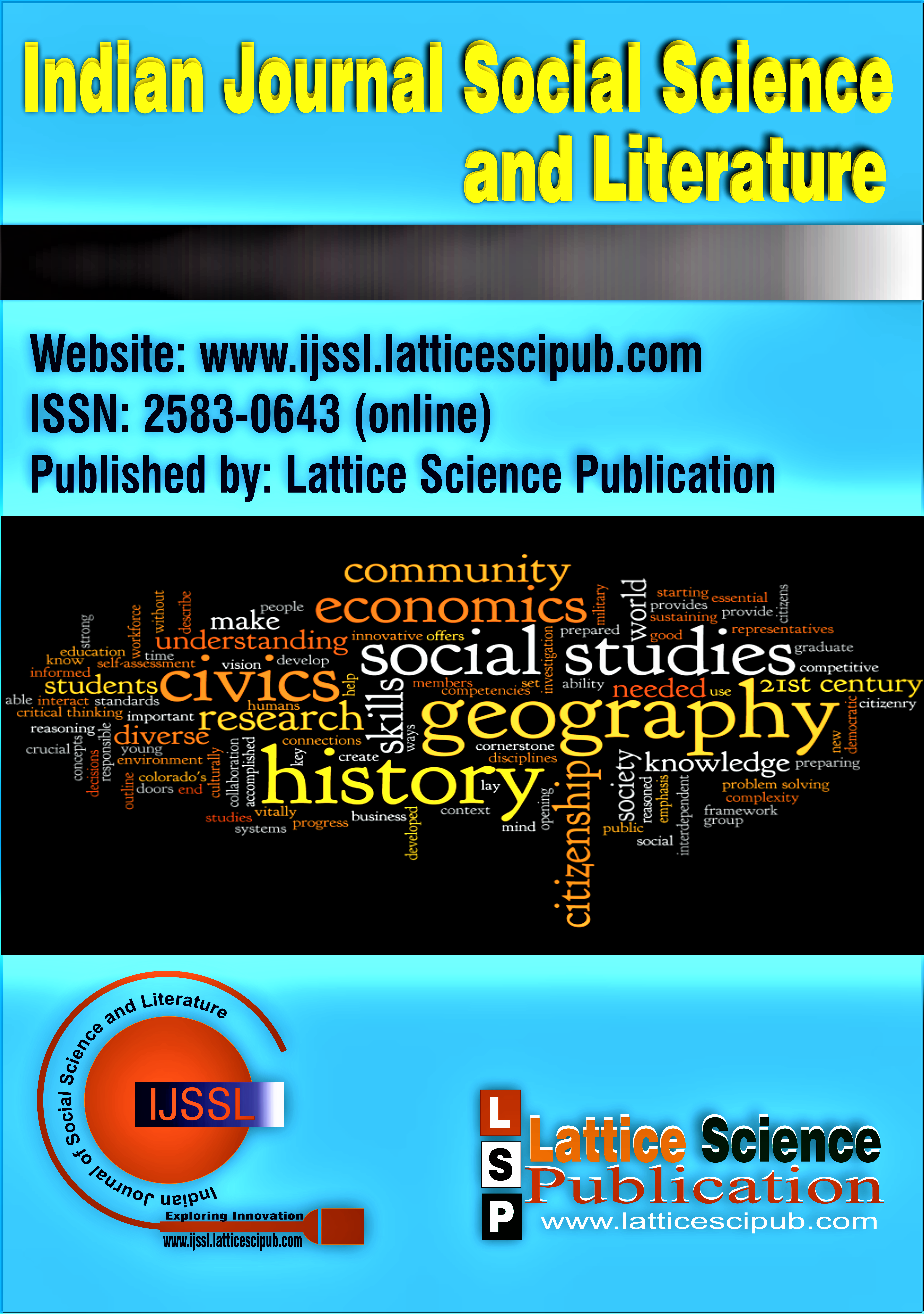Promoting Pleasure, Security and Gratification: Essential in promoting enhancement of Living Conditions
Main Article Content
Abstract
From the stage of early childhood, throughout the lives of the individuals, they are required to acknowledge the meaning and significance of traits of pleasure, security and gratification. These are important, which needs to be put into operation in personal and professional lives of the individuals. As a consequence, the individuals will carry out their tasks successfully as well as lead to up-gradation of overall standards of living. The family members are vested with the authority and responsibility of imparting information in terms of all the factors, which would be facilitating in reinforcing these traits. For example, within the professional setting, when individuals will have cordial and amiable terms and relationships with each other, they will contribute efficiently in promoting security and well-being. Furthermore, individuals get engaged in pleasurable activities, which would enable them to incur the feeling of satisfaction. The individuals are required to augment their knowledge and understanding in terms of job duties and responsibilities within personal and professional lives. Furthermore, these are required to be put into operation in a well-ordered and regimented manner. In addition, individuals need to ensure, they are contributing efficiently in promoting well-being and goodwill of family and community members. Therefore, it is well-understood, promoting pleasure, security and gratification are essential in promoting enhancement of living conditions. The main concepts that are taken into account in this research paper are, understanding the significance of promoting pleasure, security and gratification, measures to be implemented in promoting pleasure, security and gratification and advantages of promoting pleasure, security and gratification.
Downloads
Article Details

This work is licensed under a Creative Commons Attribution-NonCommercial-NoDerivatives 4.0 International License.
How to Cite
References
Chapter 9. (n.d.). Meeting Safety Needs of Older Adults. Retrieved September 14, 2023 from https://booksite.elsevier.com/samplechapters/9780323073998/9780323073998.pdf
Family as Centre of Health Development. (2013). World Health Organization. Retrieved September 14, 2023 from
http://apps.searo.who.int/PDS_DOCS/B4972.pdf
Jones, J., Aguirre, D & Calderone, M. (2004). 10 Principles of Change Management. Retrieved September 14, 2023 from strategybusiness.com
4 Keys to Strengthen Your Ability to Influence Others. (2020). Retrieved September 14, 2023 from ccl.org
Raluca, C. (2020). How Many Types of Mentoring are there? Retrieved September 14, 2023 from blog.matrixlms.com
Kaushal, B., Sharma, A. K., & Sharma, A. (2019). Iot with Dentistry: Promising Digitalization of Diagnosis in Dental-Health to Enhance
Technical Dexterity. In International Journal of Innovative Technology and Exploring Engineering (Vol. 9, Issue 2, pp. 4472–4476). https://doi.org/10.35940/ijitee.b8131.129219
Maharani, A., Gunawan, H., & Wijaya, J. D. T. (2020). Millennial Expectations about the Desire to Stay in the Workplace and Factors
that Influence it. In International Journal of Management and Humanities (Vol. 4, Issue 7, pp. 37–39). https://doi.org/10.35940/ijmh.g0665.034720
Praveenadevi, Dr. D., & Girimurugan, Dr. B. (2019). Inclusive Organisational Culture – A Competing Strategy for Business Success. In International Journal of Recent Technology and Engineering (IJRTE) (Vol. 8, Issue 4, pp. 5155–5159).





